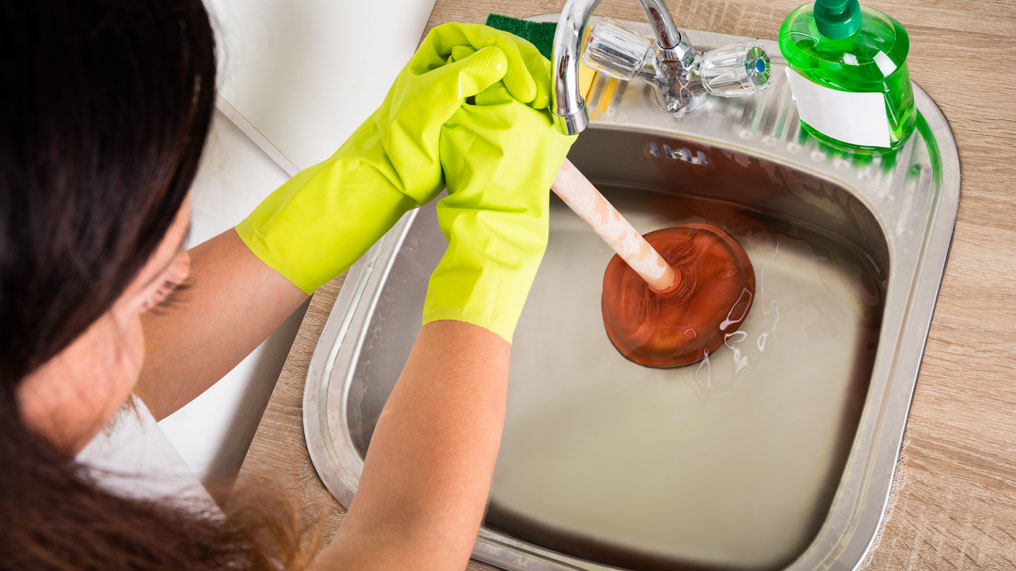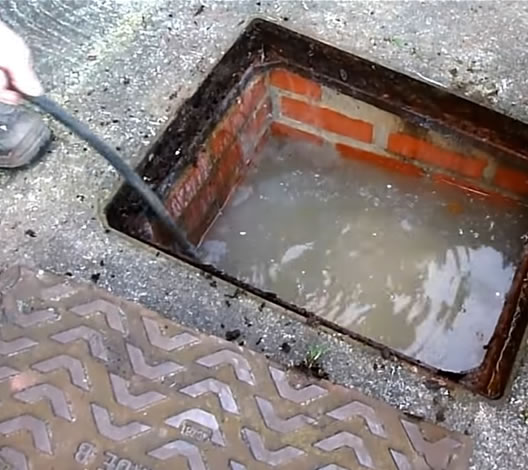Guidelines for Addressing a Blocked Drain Before Seeking Expert Assistance
Guidelines for Addressing a Blocked Drain Before Seeking Expert Assistance
Blog Article
This great article down the page about How to handle a clogged drain in your home is totally engaging. You should give it a look.

Intro
Taking care of a blocked drainpipe can be a discouraging experience, interrupting day-to-day activities and potentially creating damages to your residential property. Nevertheless, prior to connecting to plumbing specialists, there are actions you can take to attend to the concern yourself. In this overview, we'll explore DIY options and safety nets to take on a blocked drainpipe efficiently.
Determining the Issue
The primary step in attending to a blocked drainpipe is recognizing the indicators. Sluggish drainage, gurgling noises, foul odors rising from drains, or water backing up prevail indications of a blocked drainpipe. Identifying these indicators early can assist stop additionally issues.
Picking the Right Pipes Service
When selecting a pipes solution, consider variables such as experience, licensing, and customer evaluations. Pick a trusted plumbing with a record of quality workmanship and clear prices practices.
Expense Considerations
The expense of specialist drain cleaning company can differ relying on the seriousness of the blockage and the plumber's rates. Demand quotes from numerous providers and inquire about any type of additional charges to ensure transparency and stay clear of shocks.
Safety Measures
When trying do it yourself drain cleansing, focus on security. Put on safety gloves and eyewear to avoid contact with damaging chemicals or bacteria. Never mix various drainpipe cleaning items, as this can produce hazardous fumes.
Case Studies
Real-life instances show the efficiency of do it yourself options and the relevance of prompt expert intervention in dealing with drainpipe blockages.
Common Sources Of Blocked Drainpipes
Comprehending the aspects that contribute to drain pipes blockages is essential for efficient resolution. Typical offenders consist of hair, soap residue, grease, food particles, and foreign items like hygienic products or paper towels. Tree roots invading below ground pipelines can also cause significant clogs.
Do it yourself Solutions
For minor blockages, several do it yourself options can be effective. Pouring boiling thin down the drain can assist liquify oil and particles. Sodium bicarbonate and vinegar or a mix of salt and baking soft drink can serve as all-natural cleaners. Using a plunger or plumbing snake to displace obstructions is one more alternative.
Tools and Devices
Having the right devices handy can make DIY drain cleaning more efficient. A bettor is a functional device for clearing obstructions in sinks, toilets, and showers. A plumbing serpent or auger can get to much deeper clogs, while drain cleaning chemicals can be utilized meticulously for persistent blockages.
Preventive Measures
To stay clear of future obstructions, taking on safety nets is essential. Install drainpipe guards or filters to catch hair and particles prior to they get in the pipes. Consistently flush drains pipes with hot water to liquify oil build-up, and avoid getting rid of oil or strong waste down the drain.
When to Call an Expert
While DIY services can deal with small obstructions, certain indicators suggest the need for specialist support. Persistent blockages, foul odors despite cleansing efforts, or several drains pipes supporting concurrently are warnings that call for experienced treatment.
Conclusion
By adhering to the suggestions detailed in this guide, you can properly tackle obstructed drains pipes and avoid future plumbing problems. Whether going with do it yourself services or looking for professional aid, punctual activity is essential to keeping a healthy and balanced plumbing system and preserving the honesty of your home.
How to Clear a Clogged Drain Yourself (And When to Call In the Professionals)
What Can Clog a Drain
Dirt Skin flakes Hair Grease Soap scum Food Offset pipes Tree roots Small objects Mineral buildup DIY Tricks to Unclog a Drain
You can fix this! Once you have identified the source of the clog (or have a vague idea), you can try one or a combination of these fixes in order to clear your plumbing.
Wire Hanger or Snake
Untangle and clear out hair from a drainpipe with a homemade snake. Use a straightened-out wire hanger with a 90-degree angle hook to locate the clog and drag out any unwanted material.
Remember not to push the clog further down to where the wire hanger cannot reach! If you need to follow up with a plunger, give it a try. Your efforts might be more successful after it’s been wire-snaked.
If you want to get fancy and don’t have a wire hanger to spare, head to the store and pick up a hand-operated drain snake. You can get one for $10-$30. It may save you the hassle, and provide additional length to reach deep into the clogged pipe.
Plunger
A cup plunger has a suction cup attached to a wooden handle. The rubber creates a seal around the drain, and increases the pressure force of the plunger.
Plunge for 30-second increments to loosen the clog. This may need to be repeated over the course of 15-20 minutes. Once plunged, run the water to flush the remaining material out of the drain.
Remember– never use a plunger if you have used a chemical drain cleaner. These chemicals can splash up from the force of the plunger and cause serious injury or burns.
Boiling Water
Hot water can sometimes break up materials into a flushable amount. Dirt, grease, and soap buildup requires heat in order to unstick from surfaces.
Take your kitchen kettle and heat your water to a boil. Once it reaches a rolling boil, pour it directly down the drain into the blockage. Carefully follow with plunging, if necessary.
Don’t worry if this takes more than one try! It can often take multiple kettles and repeated plunging in order to clear a particularly stubborn clog.
Chemical Drain Cleaner
As a last resort, pick up a bottle of chemical drain cleaner. Drain-cleaning chemicals are potent, and not very good for the environment.
You may need to wear protective eyewear in gloves before handling your bottle of chemical drain cleaner. Follow the instructions printed on the bottle, and flush with water as soon as the instructions allow. Do not follow with plunging.
Baking Soda and Vinegar
As a safer alternative to chemical drain cleaner, baking soda and vinegar can create a chemical reaction that clears tough clogs.
Combine one cup of cleaning vinegar with one cup of boiling water, and set aside. Once you have done this, pour half a cup of baking soda down the drain. Give the baking thirty seconds to settle and cover a large portion of the problem drain.
Following the baking soda, pour down your vinegar and hot water solution. Once the vinegar and baking soda combine, the mixture will bubble and fix. Let this reaction fizzle in the drain for about an hour.
After an hour, follow with a kettle’s worth of hot water. The heat and liquid should flush out any remaining material.
When to Call a Plumber
If your DIY attempts haven’t cleared your clog drain, it’s time to call in a professional. It’s not worth losing access to your kitchen sink or high-traffic bathroom. A clog in a vital area can keep you from the things you’d rather be doing, and derail your routine.
Anytime a clog is causing water to spread is a time to call in a plumbing service. What starts out as a little bit of water can quickly grow into serious, expensive water damage.
Additionally, a serious clog can result in burst pipes or serious leaks. Make sure you know when to take it seriously!
https://myguysnow.com/how-to-clear-a-clogged-drain-yourself-and-when-to-call-in-the-professionals/

Do you appreciate reading up on Tips for Dealing with Clogged Drains and Sewer Lines? Make a remark below. We will be happy to see your opinion about this content. We hope that you come back again soon. Sharing is nice. You just don't know, you might be helping someone out. Thanks a lot for going through it.
Schedule Estimate Report this page